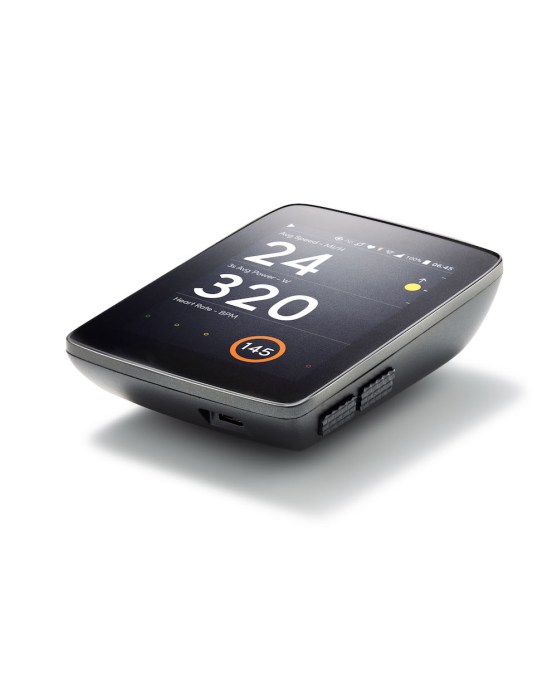Hammerhead founder and CEO Piet Morgan is a bicyclist, and he started the company because he wanted a better navigation.
So Hammerhead crowdfunded its first product, the H1, and subsequently built Karoo, a “cycling computer” that supports navigation and training. But Morgan told me his ambitions is bigger than that.
After all, he sees a future where electric bikes need smart range projections, where bikeshare fleets need to be managed, where social training programs like Strava can pull data from the bike itself and where any bicycle should come with theft and crash alerts.
“There needs to be a software layer on the bike,” Morgan said. “That’s really what we’re trying to build.”
That future isn’t here yet, however, so Hammerhead is starting out by building a consumer device. And while Morgan eventually plans to license the software to bike manufacturers and other partners, he said there will be a common goal across the business: To build products that cyclists want to use.

Karoo
That includes the Karoo device itself (currently available for $399) — a mountable, shockproof computer with a high resolution, anti-glare touchscreen. But Morgan argued that the real differentiator is the software, because the dominant products from companies like Garmin are built with “software that’s pretty rudimentary.”
Karoo, on the other hand, runs on a regularly updated, Android-based operating system called Karoo OS. It includes a mapping and turn-by-turn navigation system that the company said is designed specifically for cyclists. And the real potential may be unlocked when it launches an app store that will allow third-party software to run on the device.
Hammerhead is announcing that it has raised $4.2 million in seed funding led by Primary Ventures and KB Partners, with Primary’s Steve Schlafman and KB’s Keith Bank joining the board. Courtside Ventures, Maveron, Drummond Road Capital, MapMyFitness co-founder Robin Thurston and Zipp CEO Andy Ording also participated.
“What makes us a compelling venture-scale opportunity is what I believe is really going to be almost a winner-take-all situation,” Morgan said. “The company that [defines] this category is going to be able to own it.”